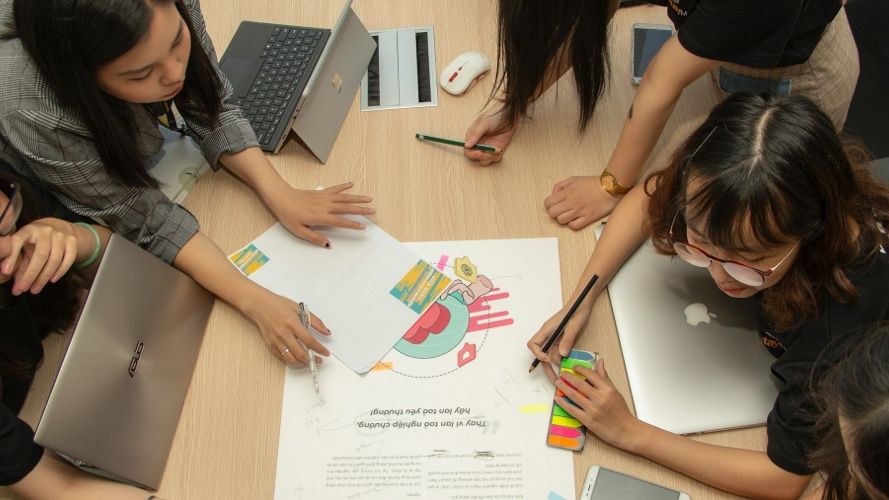Academic enrichment camps: day vs overnight guide for first-time parents

Introduction
Academic enrichment camps are a great way to keep kids learning and engaged during the summer, especially for families who want more than just traditional recreation. These camps focus on subjects like science, reading, writing, math, robotics, or even test prep - but they do it in a hands-on, fun, and collaborative environment.
This guide is designed to help first-time camp parents understand the differences between day and overnight academic camps so you can decide what fits your child and family best.
Key takeaways:
- Academic enrichment camps combine learning with hands-on fun
- Day camps offer shorter hours and are great for younger campers
- Overnight camps allow for deeper projects and stronger friendships
- Schedules, meals, supervision, and packing differ by format
- Choosing the right type depends on your child’s age, readiness, and goals
Table of Contents
What is an academic enrichment camp?
Academic enrichment camps are designed for kids who want to explore subjects more deeply outside of the school year. They offer a mix of classroom-style learning and hands-on activities like experiments, debates, or creative writing workshops. These camps are ideal for kids who enjoy learning and want to stay mentally active over the summer.
For day campers
Day camps usually run for 4 to 8 hours per day and are held at local schools, universities, or learning centers. Kids return home in the evening, making it a good fit for younger children or those new to structured programs. Staff include licensed educators, teaching assistants, and enrichment specialists.
For overnight campers
Overnight academic camps offer a deeper experience. Campers live on-site at boarding schools or college campuses for one to several weeks. They follow a structured schedule of workshops, group activities, and evening programs. It’s a great option for older kids who are independent and excited to dive into subjects like robotics, literature, or coding.
Typical camp activities
For day campers
Academic enrichment day camps often offer a blend of core subjects like math, reading, and science, paired with engaging formats such as hands-on experiments, creative writing workshops, and group projects. Campers may rotate through themed stations or join focused programs in coding, robotics, creative arts, or critical thinking challenges.
Because the schedule is shorter, day camps typically focus on breadth, giving kids the chance to explore multiple subjects or skill areas within a week.
For overnight campers
Overnight academic enrichment camps dive deeper into subject matter. Kids might work on extended STEM challenges, develop a business pitch, produce a short film, or prepare a presentation in a foreign language. There’s more time for individualized feedback and long-form projects.
Evenings may include team-building games, campfires, or academic trivia to balance learning with fun and friendship.
You can also learn more about STEM or more sepcific tech and coding camps
Sample daily schedule
Day camp schedule
| Time | Activity |
|---|---|
| 8:30 AM | Drop-off and welcome activity |
| 9:00 AM | STEM or writing session |
| 10:30 AM | Snack break and group games |
| 11:00 AM | Math or logic puzzles |
| 12:00 PM | Lunch |
| 1:00 PM | Project-based learning or arts |
| 3:00 PM | Pick-up |
Overnight camp schedule
| Time | Activity |
|---|---|
| 7:30 AM | Wake up and breakfast |
| 9:00 AM | Morning academic block |
| 12:00 PM | Lunch |
| 1:00 PM | Afternoon group project |
| 4:00 PM | Recreation and free time |
| 6:00 PM | Dinner |
| 7:00 PM | Evening workshops or games |
| 9:00 PM | Wind-down and lights out |
What to expect as a parent
For day campers
Parents should plan to pack lunch, snacks, and a water bottle each day. Academic enrichment day camps typically run on a school-like schedule, with drop-off in the morning and pickup in the late afternoon. You may receive weekly progress updates or short reports from staff outlining what your child is learning.
Transportation is usually parent-arranged, and tuition tends to be lower than overnight camps. Some programs may require basic school supplies, but overall, the prep is minimal compared to overnight options.
For overnight campers
Parents will need to prepare an overnight camp checklist, which includes clothing, toiletries, academic materials (like notebooks or reading books), and any required medications. Some enrichment camps may recommend laptops or devices depending on the subject area.
Expect detailed communication before camp begins, including safety policies, homesickness guidance, and camper readiness tips. These programs tend to provide regular updates to families via email or parent portals. A strong counselor team is usually in place to support academic success and personal growth.
Benefits of academic enrichment camps
Day camp benefits
- Great for introducing new topics without overwhelming young learners
- Affordable and accessible with shorter daily commitments
- Perfect for younger campers or first-timers adjusting to group programs
- Local programs often mean easier logistics and less prep for families
Overnight camp benefits
- Allows kids to deeply immerse in a topic over a longer period
- Encourages independence, peer bonding, and focus without daily distractions
- Combines academic and social growth in a supportive environment
- Provides exposure to new routines and diverse perspectives
How to choose between day and overnight
If your child is just starting out, day camps can be a great way to ease into new topics without a long-term commitment. Day programs are ideal for families wanting to stay local and maintain some summer routine. They are also more cost-effective and offer flexible scheduling.
For older or more independent kids, an overnight academic camp can offer a life-changing opportunity. The structure and immersive environment allow for deeper learning and stronger relationships with peers and staff. Just be sure to assess your child’s readiness for overnight stays by thinking about sleepovers, independence, and comfort away from home.
Still unsure? you can read our other guides for more help deciding.
FAQ
- Are academic enrichment camps only for gifted kids?
- No. These camps welcome a wide range of learners. Some are designed for gifted students, while others support kids who want to stay sharp or catch up over summer.
- What subjects are typically offered?
- Common themes include writing, math, science, robotics, coding, public speaking, and even test prep. Some programs offer cross-subject exploration or STEAM activities.
- Do I need to provide any materials or supplies?
- Day camps may ask for pencils, notebooks, or a calculator. Overnight programs often include materials in the tuition cost, but check the packing list in advance.
- How do I know if my child is ready for an overnight camp?
- Signs of camper readiness include independence with routines, successful sleepovers, and curiosity about trying new environments. Some families try a short session first.
- Are these camps safe?
- Yes, most follow summer camp safety tips including background-checked staff, clear supervision policies, and emergency procedures. Ask about camp counselor safety training and ratios.
- Is ACA accreditation required?
- No, but ACA accreditation is one sign of quality. It’s a good idea to look for camps that openly share their safety policies and staff training process.
Conclusion
Academic enrichment camps give kids the chance to learn in a fun, low-pressure environment - and summer is a great time to spark new interests. Whether you choose a day or overnight format, these programs help build confidence, skills, and a love for learning beyond the classroom.
As a first-time parent, start by considering your child’s personality and learning style. Talk to them about what excites them. Then, explore your local options, read reviews, and don’t hesitate to ask camps questions. The right experience is out there - and it might just make this summer unforgettable.



